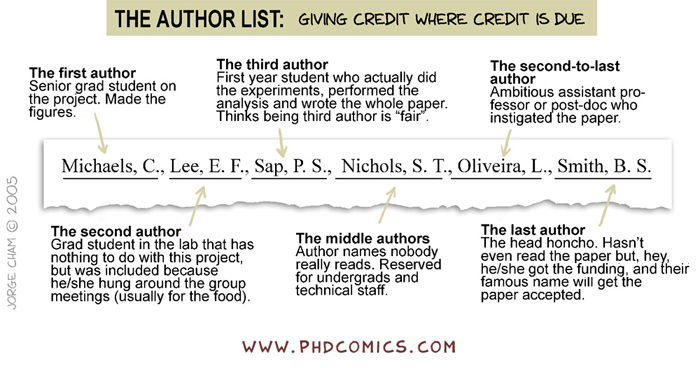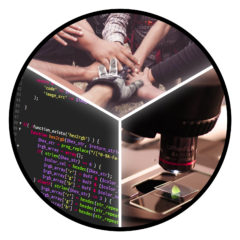Authorships, together with citations, work as academic currency. This is how we know something is valuable: people in the community discuss it.
When it comes to authorships, however, things get trickier as we only have 3 categories for authorship of standard scientific papers. We distinguish First authors, Last authors, and “middle” authors. Assigning order of name to contribution is not trivial.

We can imagine treating paper as a company, and authorship as ownership structure. Each person will then own part of the company (paper), which should be made visible.
We all know papers where last author in that scheme would “own” 1% or even less. And we know papers where people who should’ve got 30% of the ownership are merely “acknowledged” at the end.
But academic papers are not companies, or products on a free market. We don’t have Securities and Exchange Commision to hold people accountable. It has to start within community. Accountability can be established by secret pre-registration of the paper. We often know that our work will result in paper, and a pre-print. Why not tell BioRxiv early on: “Hey, we are writing this. Authorship is split 4-ways as 25/25/30/20% between these authors”.
In case when autor A wants to bring a collaborator, they can negotiate with other stakeholders about the fraction of the paper that will be given to the collaborator. If somebody decides to quit project, their shares can be diluted among other authors. Splitting “shares” of the paper also allows us to remember that inviting more people to a project comes with a cost, but can be greatly beneficial in increasing value (just like with any investment).
While far from perfect (and probably impossible to implement) that scheme offers something of value already – a language to discuss paper authorship situations. For example, PI can state from the beginning: “This paper is not my responsibility, so the postdoc X will have 51% of shares” It makes it clear from the start who is really in charge.
There are a lot of problems with trying to treat papers as products or commodities. While knowledge is a commodity today, it is very hard to measure, break in pieces, and evaluate. Using monetary language, however, can be useful in managing writing and publication process.
